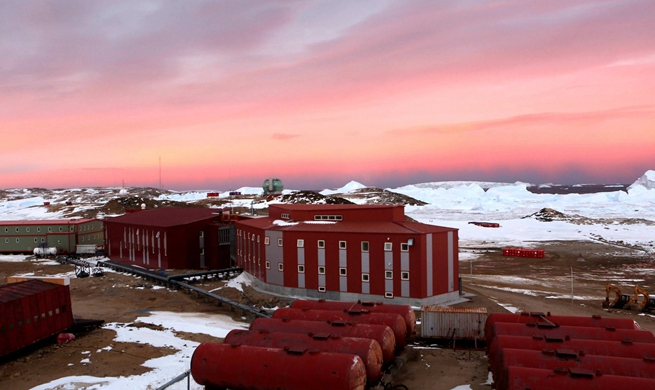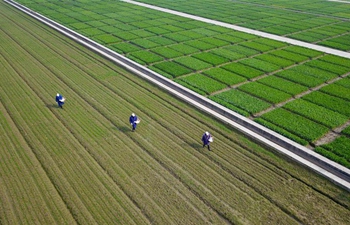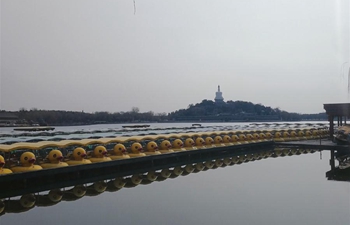SAN FRANCISCO, Feb. 26 (Xinhua) -- Blue whales depend more on their exceptional memories than environmental cues to locate krill, their typical source of food in the ocean, according to a new study to be published next week.
An interdisciplinary team of researchers studied 10 years of tagging data from the Marine Mammal Institute at Oregon State University (OSU) on the U.S. west coast to determine the daily movements of 60 individual blue whales in the California Current Ecosystem, and the results were compared with satellite-based measurements of the krill population in feeding areas in the ocean.
The researchers, who examined those records of both whale migration and oceanic conditions, found that blue whales relied mostly on their memories to locate stable, high-quality foraging sites that they have visited in the past, as climate change could produce novel changes on the ecosystem of their food habitat.
The results of the study are to be published in Proceedings of the National Academy of Sciences next week.
Like many species that migrate on land, blue whales track the timing of food availability along their migration routes, but they would carefully adjust the pace and timing of their migrations to find food instead of simply swimming from one place to another, said Briana Abrahms, the lead author of the study.
Abrahms is also a research ecologist with the Southwest Fisheries Science Center of the U.S. National Oceanic and Atmospheric Administration in Monterey, California.
Blue whales have a strong fidelity to certain sites along the West Coast of the United States, which they use year after year, said Bruce Mate, who directs the OSU's Marine Mammal Institute.
The study on the decision-making of blue whale's migration will help scientists develop a better understanding of the whale's ability to adapt to potential future changes to ocean conditions, Abrahms said.













